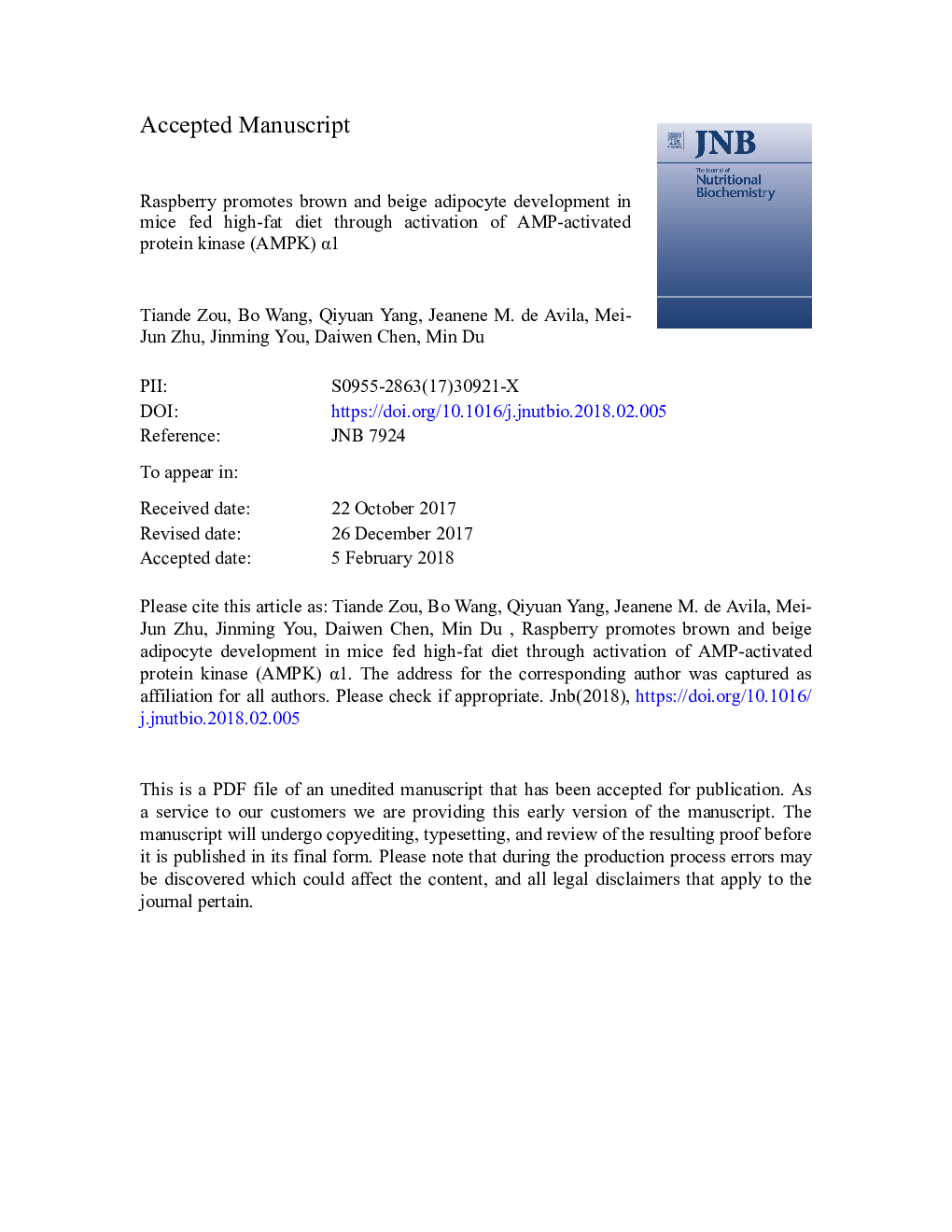| Article ID | Journal | Published Year | Pages | File Type |
|---|---|---|---|---|
| 8336388 | The Journal of Nutritional Biochemistry | 2018 | 29 Pages |
Abstract
Development of brown and beige/brite adipocytes increases thermogenesis and helps to reduce obesity and metabolic syndrome. Our previous study suggests that dietary raspberry can ameliorate metabolic syndromes in diet-induced obese mice. Here, we further evaluated the effects of raspberry on energy expenditure and adaptive thermogenesis and determined whether these effects were mediated by AMP-activated protein kinase (AMPK). Mice deficient in the catalytic subunit of AMPKα1 and wild-type (WT) mice were fed a high-fat diet (HFD) or HFD supplemented with 5% raspberry (RAS) for 10 weeks. The thermogenic program and related regulatory factors in adipose tissue were assessed. RAS improved the insulin sensitivity and reduced fat mass in WT mice but not in AMPKα1-/- mice. In the absence of AMPKα1, RAS failed to increase oxygen consumption and heat production. Consistent with this, the thermogenic gene expression in brown adipose tissue and brown-like adipocyte formation in subcutaneous adipose tissue were not induced by RAS in AMPKα1-/- mice. In conclusion, AMPKα1 is indispensable for the effects of RAS on brown and beige/brite adipocyte development, and prevention of obesity and metabolic dysfunction.
Keywords
cyto cELOVL3TMEM26PRDM16CD137cell death-inducing DFFA-like effector aRERTbx1AMPKPGC-1αBATHFDRASGTTAMP-activated protein kinaseUcp1epididymal white adipose tissueinguinal white adipose tissuebrown adipose tissueBrowningThermogenesisglucose tolerance testRaspberryhigh-fat dietcytochrome cObesityRespiratory exchange ratiouncoupling protein 1transmembrane protein 26Cidea
Related Topics
Life Sciences
Biochemistry, Genetics and Molecular Biology
Biochemistry
Authors
Tiande Zou, Bo Wang, Qiyuan Yang, Jeanene M. de Avila, Mei-Jun Zhu, Jinming You, Daiwen Chen, Min Du,
